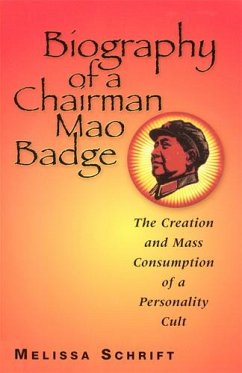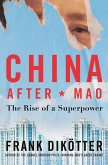With the Great Proletarian Cultural Revolution in 1966, the regime of Chairman Mao Zedong launched a propaganda campaign aimed at disseminating inspiring images of the chairman to a skeptical populace. So was born the "Mao badge", a political icon in the form of a pin that was widely distributed to create, sustain, and inflate the Mao personality cult during the Cultural Revolution (1966-1976). Scholars estimate that over two billion Mao badges, featuring over fifty thousand different designs and themes, were produced. As China enters into an era in which people can more openly express the fallout of the Cultural Revolution, these icons have taken on new meanings. Individuals are wearing them and talking about them, often in subversive ways. Melissa Schrift suggests that the badges developed "lives" that far surpass the intentions of their creators, as the Chinese ironically commodify them, both during the Cultural Revolution, and today. During the Mao years, people wore the objects to symbolize their unquestioned loyalty to Mao. Yet even then many Chinese subverted the badges' symbolic meaning. Using them in socially approved rituals, they gained a measure of political credibility that masked their practice of customary rites. Biography of a Chairman Mao Badge is a work of cultural history that contributes to our understanding not only of Chinese society but, more generally, of strategies people employ in responding to and transforming the meaning of propaganda campaigns and symbols.
Hinweis: Dieser Artikel kann nur an eine deutsche Lieferadresse ausgeliefert werden.
Hinweis: Dieser Artikel kann nur an eine deutsche Lieferadresse ausgeliefert werden.








